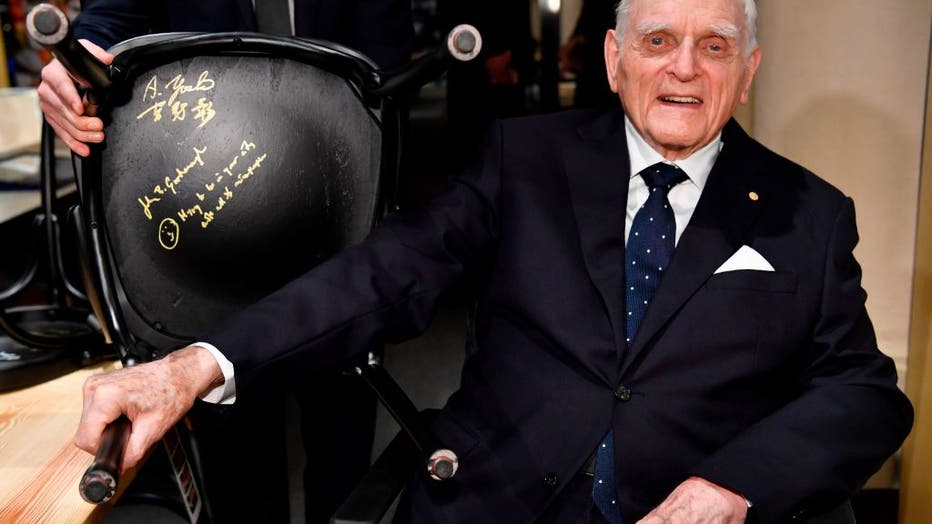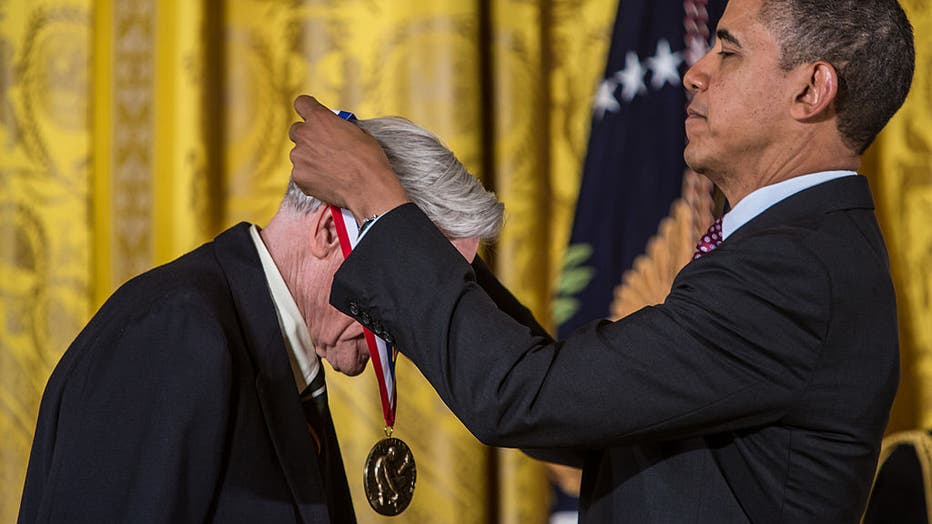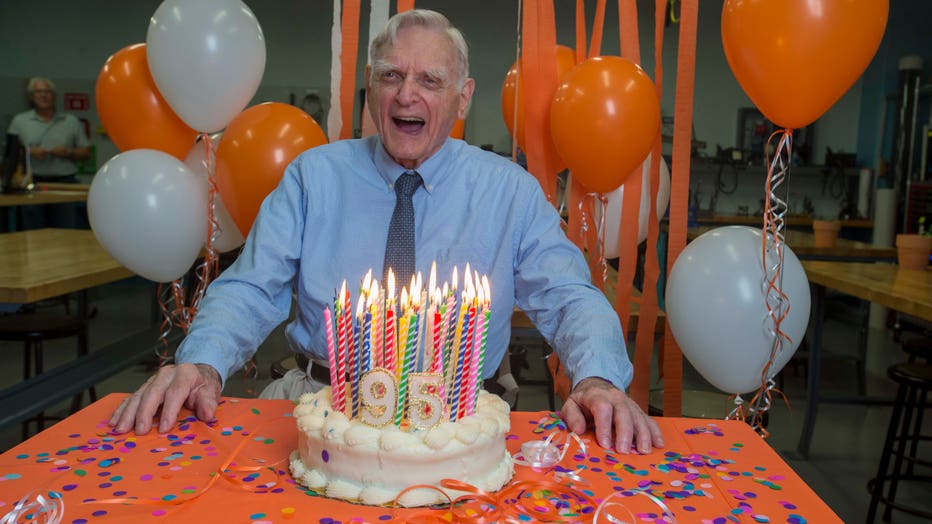Nobel Prize-winning UT Austin professor dies at 100
UT professor becomes oldest person to win Nobel Prize in Chemistry
John B. Goodenough, a professor at UT Austin's Cockrell School of Engineering, was awarded the 2019 prize with Stanley Whittingham of the State University of New York at Binghamton and Akira Yoshino of Meijo University in Japan "for the development of lithium-ion batteries."
AUSTIN, Texas - John B. Goodenough, the oldest winner of the Nobel Prize in Chemistry, has passed away, according to the University of Texas at Austin.
Goodenough, who won the Prize in 2019 for his work on the development of the lithium-ion battery, died Sunday at the age of 100.
Goodenough identified and developed the critical materials that provided the high-energy density needed to power portable electronics, initiating the wireless revolution. Batteries incorporating his materials are used worldwide for mobile phones, power tools, laptops, tablets, and other wireless devices, as well as electric and hybrid vehicles.
READ MORE: UT professor talks about winning Nobel Prize in Chemistry

American scientist John Bannister Goodenough, Nobel Prize laureate in Chemistry 2019, poses signing a chair at the Nobel Museum in Stockholm, Sweden on December 06, 2019. (Photo by Henrik MONTGOMERY / TT News Agency / AFP) / Sweden OUT (Photo by HENR
In 1979, Goodenough showed that by using lithium cobalt oxide as the cathode of a lithium-ion rechargeable battery, it would be possible to achieve a high density of stored energy with an anode other than metallic lithium.
This discovery led to the development of carbon-rich materials allowing for the use of stable and manageable negative electrodes in lithium-ion batteries, says UT Austin.
Goodenough served as a faculty member in the Cockrell School of Engineering for 37 years, holding the Virginia H. Cockrell Centennial Chair of Engineering and faculty positions in the Walker Department of Mechanical Engineering and the Chandra Family Department of Electrical and Computer Engineering.
Goodenough is one of four Nobel laureate professors at UT Austin, including physicist Steven Weinberg in 1979, Hermann J. Muller in medicine and physiology in 1946 and Ilya Prigogine in chemistry in 1977. Muller and Prigogine preceded Goodenough in death.
Three UT Austin alumni have also won the Nobel Prize: J.M. Coetzee for literature in 2003, Michael Young for medicine or physiology in 2017, and Jim Allison for medicine or physiology in 2018.
UT professor talks about winning Nobel Prize
University of Texas professor John Goodenough continues to celebrate his accomplishment.
Who is John Goodenough?
Goodenough began his career at MIT's Lincoln Laboratory in 1952, where he laid the groundwork for the development of random-access memory (RAM). After leaving MIT, he became professor and head of the Inorganic Chemistry Laboratory at the University of Oxford.
Goodenough earned a bachelor's degree in mathematics from Yale in 1944 and has a doctorate in physics from the University of Chicago.
Goodenough was also the recipient of the National Medal of Science, the Japan Prize, the Charles Stark Draper Prize, the Benjamin Franklin Medal, the Enrico Fermi Award, the Robert A. Welch Award, the Copley Medal and many others. He has authored several books, including an autobiography titled "Witness to Grace," published in 2008.

WASHINGTON, DC - FEBRUARY 1: President Barack Obama awards the National Medal of Science to John B. Goodenough in a ceremony at the White House on February 1, 2013 in Washington, DC. The National Medal of Science recognizes individuals who have made
Goodenough's work at UT Austin
He came to UT Austin in 1986, setting out to develop the next battery breakthrough and educate the next battery innovators. In 1991, Sony commercialized the lithium-ion battery, for which Goodenough provided the foundation for a prototype.
In 1996, a safer and more environmentally friendly cathode material was discovered in his research group, and, in 2020, a Canadian hydroelectric power company acquired the patents for this latest battery.
In 2022, in honor of his 100th birthday, scientists and engineers in the global battery and solid-state science communities came together for a symposium to share stories of Goodenough’s impact and discuss challenging problems in condensed matter physics and chemistry and the next generation of battery research.

Goodenough, John 2017 95th pre-birthday party in the Maker Studio at the Cockrell School of Engineering - photos taken on June 30, 2017. His actual birthday is on July 25.
Goodenough frequently donated the monetary prizes from his awards to UT, helping to support engineering graduate students and researchers.
In 2006, he established the John B. and Irene W. Goodenough Endowed Research Fund in Engineering, and in 2016, he established the Irene W. Goodenough Endowed Presidential Scholarship in Nursing in honor of his wife of over 70 years.
St. Catherine’s College at the University of Oxford also established the Goodenough Fellowship in chemistry in his honor.

